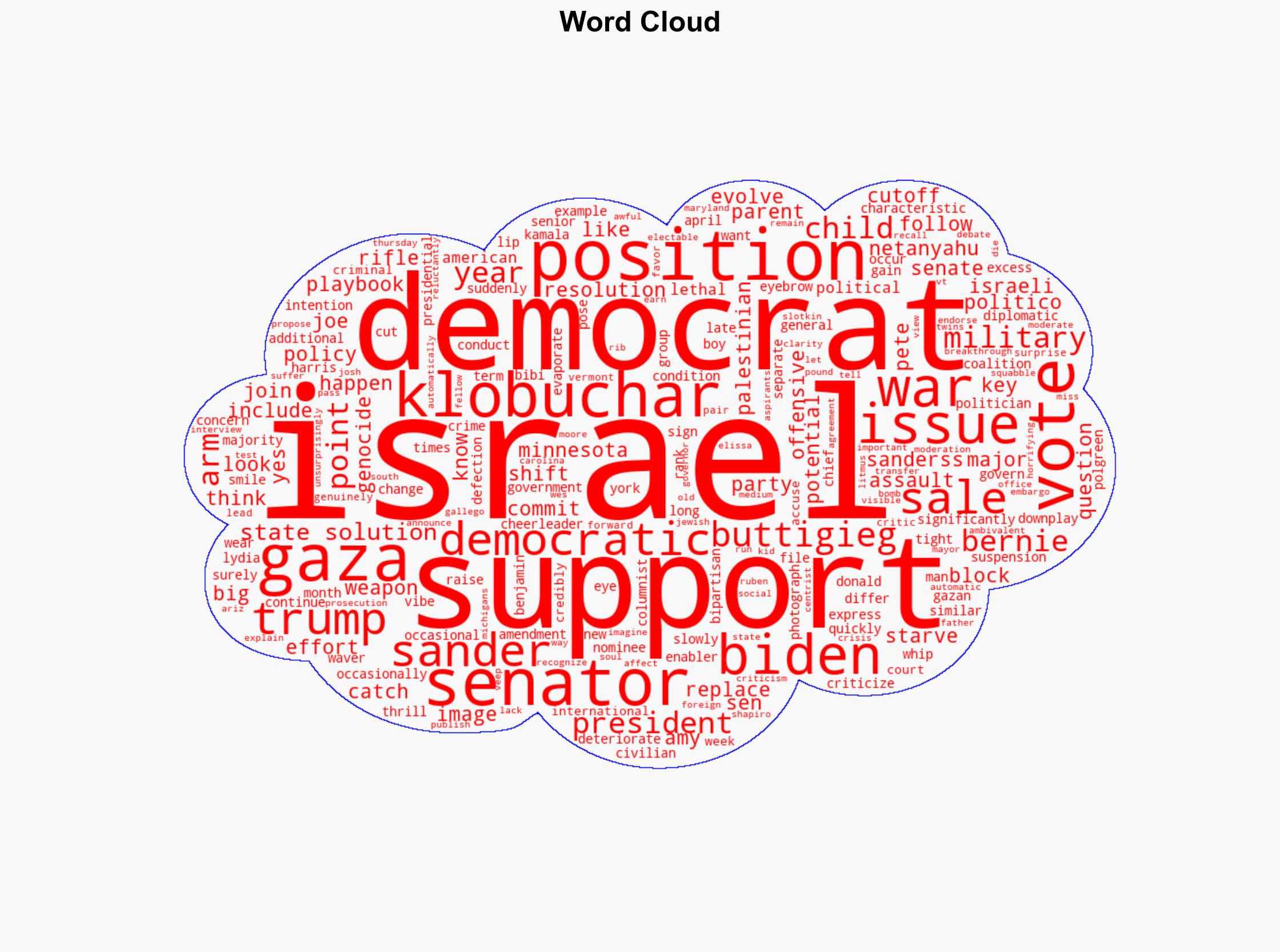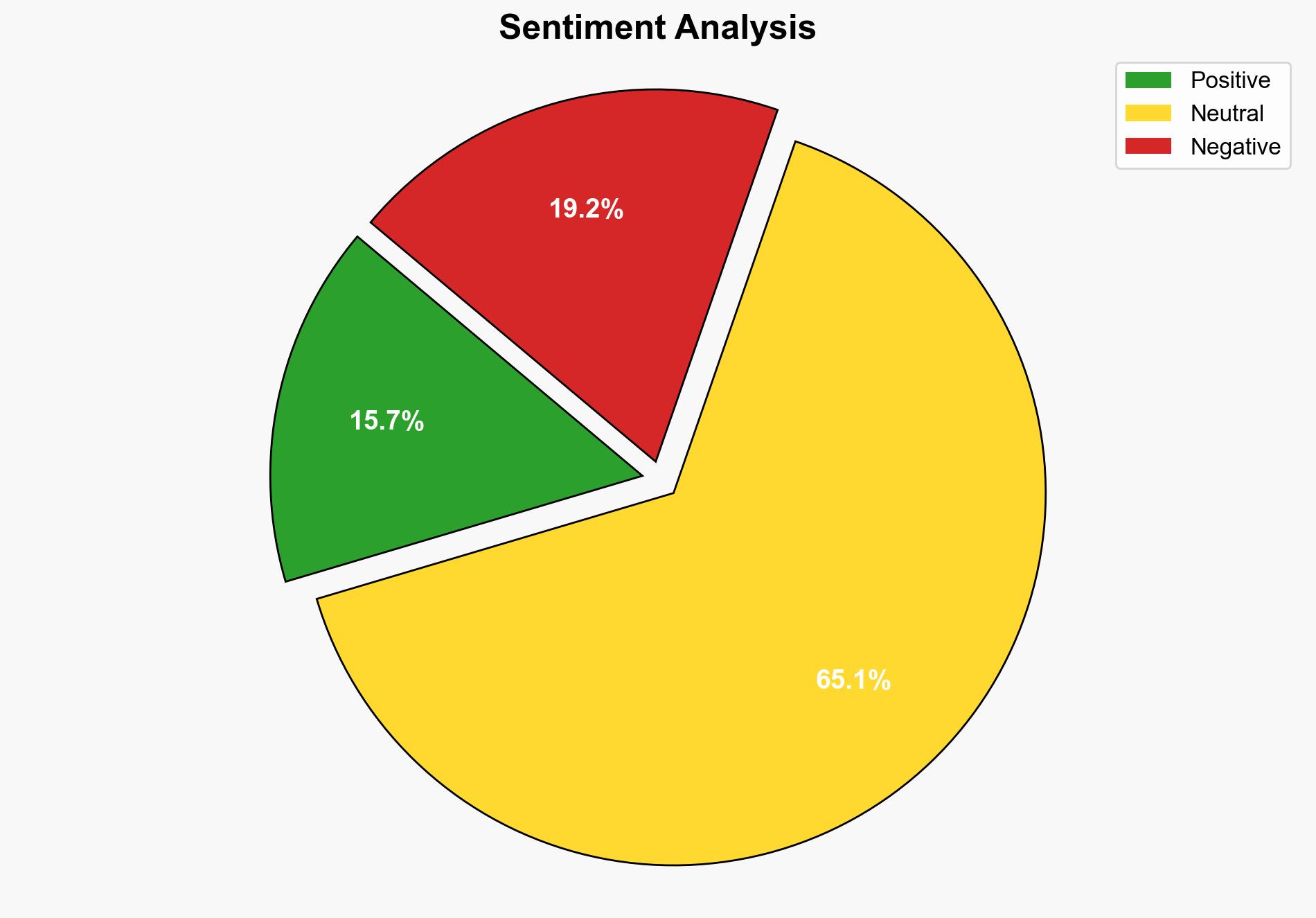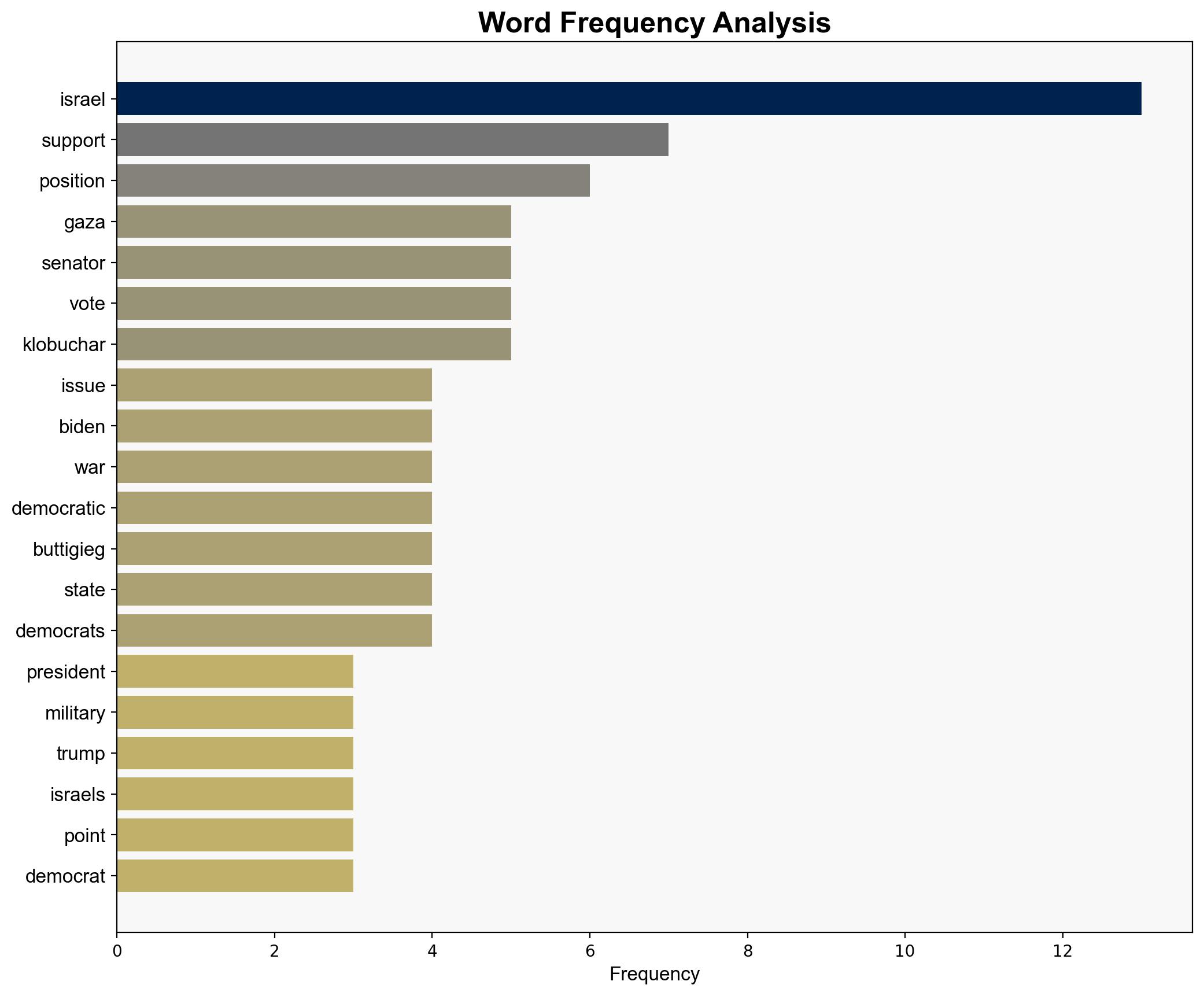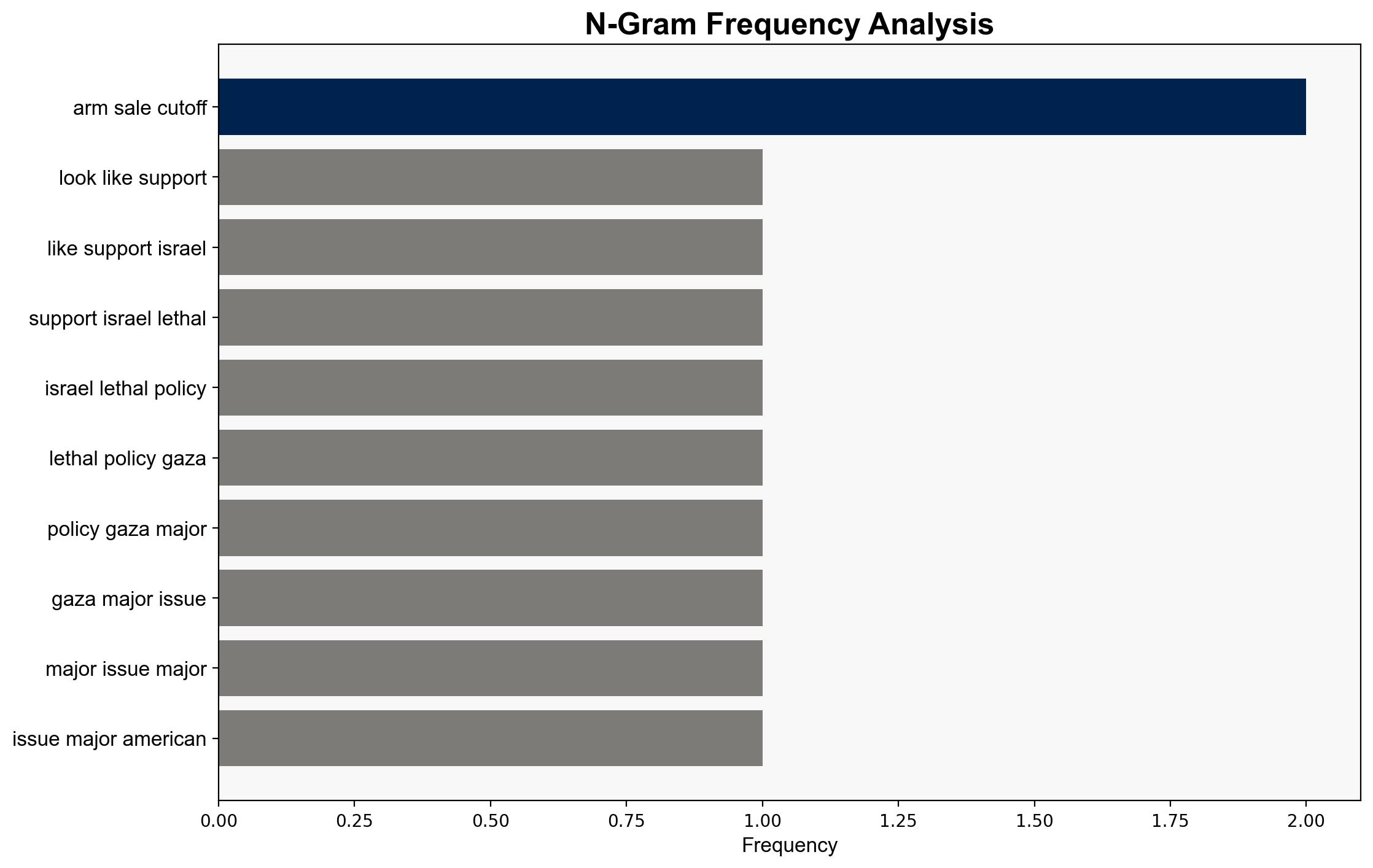Democrats Edge Away From Unwavering Support for Israel – New York Magazine
Published on: 2025-08-16
Intelligence Report: Democrats Edge Away From Unwavering Support for Israel – New York Magazine
1. BLUF (Bottom Line Up Front)
There is a noticeable shift within the Democratic Party towards a more critical stance on U.S. support for Israel, particularly concerning military aid. The most supported hypothesis is that this shift is driven by changing public opinion and internal party dynamics. Confidence in this assessment is moderate, given the complexity of political motivations. It is recommended that stakeholders monitor this trend closely and prepare for potential policy shifts that could affect U.S.-Israel relations.
2. Competing Hypotheses
1. **Hypothesis 1**: The Democratic Party’s shift is primarily driven by changing public opinion and increasing pressure from progressive elements within the party. This is supported by the growing number of Democratic senators supporting measures to restrict military aid to Israel.
2. **Hypothesis 2**: The shift is a strategic maneuver to differentiate from the Republican Party and appeal to a broader voter base ahead of upcoming elections. This is suggested by the timing of the shift and the involvement of potential presidential candidates.
Using ACH 2.0, Hypothesis 1 is better supported due to the consistent pattern of progressive influence on Democratic policy positions and public statements from key figures like Bernie Sanders and Amy Klobuchar.
3. Key Assumptions and Red Flags
– **Assumptions**: It is assumed that public opinion is a significant driver of policy change within the Democratic Party. Another assumption is that internal party dynamics are shifting towards more progressive stances.
– **Red Flags**: The possibility of strategic deception or posturing for electoral gains should be considered. Additionally, the lack of clarity from some politicians, such as Amy Klobuchar, could indicate internal conflict or indecision.
4. Implications and Strategic Risks
The shift in Democratic support could lead to strained U.S.-Israel relations, impacting diplomatic and military cooperation. There is a risk of polarization within the U.S. political landscape, potentially affecting bipartisan support for Israel. Escalation scenarios include increased tensions in the Middle East if U.S. policy changes significantly.
5. Recommendations and Outlook
- Monitor statements and policy proposals from key Democratic figures to anticipate further shifts.
- Engage in diplomatic dialogue with Israeli counterparts to manage expectations and mitigate potential fallout.
- Scenario Projections:
- Best Case: The Democratic Party maintains a balanced approach, ensuring continued U.S.-Israel cooperation.
- Worst Case: A significant policy shift leads to a breakdown in U.S.-Israel relations.
- Most Likely: Gradual policy adjustments with increased scrutiny on military aid.
6. Key Individuals and Entities
– Bernie Sanders
– Amy Klobuchar
– Pete Buttigieg
– Elissa Slotkin
– Ruben Gallego
7. Thematic Tags
national security threats, geopolitical dynamics, U.S.-Israel relations, Democratic Party politics





